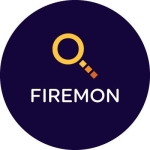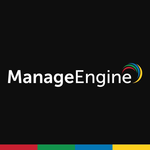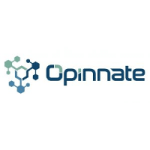What is our primary use case?
We planned to start with AlgoSec Firewall Analyzer and later procured FireFlow as well.
We deployed Fireflow as we have been migrating the Infrastructure to SaaS, increasing in multi-vendor engagements on multiple Network and Security layers and handling requests from roaming users ends.
AlgoBot has been enabled to few users to validate their requirements and requests on their own, which has helped them to understand their current access and to create requests that are very accurate and relevant.
With respect to the environment, it's distributed with various network and security solutions, with multiple zones and a maintenance team.
How has it helped my organization?
Over the period of two years, we integrated the AlgoSec Firewall Analyzer and FireFlow on multiple solutions including next-generation firewalls, web security, proxies, and other network devices.
On the improvement part, we enabled the common set of policies across firewalls and proxies. This tool helped us eliminate the requirement to have L3 engineer in our other data centers and our Tier 1 and 2 engineers utilize the solution well from the configuration and maintenance areas.
We simply pass over three to four external agency audits on various particulars which we spent more time on before onboarding the solution.
What is most valuable?
One of the most valuable parts for us is to achieve the compliance standards without ample strain and burden. Defined templates assisted us to make effective on following the internal processes and the industry standard.
It enhanced the complete workflow system within six months of deployment. We eventually onboarded by integrating with multiple solutions.
We performed regular audits internally to standardize and to pass the external audits effortlessly.
In simple words, this process empowered us to define a metrics among our industry and set the development goals clearly.
What needs improvement?
Support tickets and engineer assignments are one of the few concerns we are facing these days. Initially, they were hard to co-ordinate with the technical support team and the AlgoSec management team helped us to follow the defined Service Level Agreements.
We needed to directly communicate with the integrated solution TAC Teams, let say of Palo Alto or Checkpoint, and we needed to co-ordinate jointly for addressing an issue.
The AlgoSec support team came on a joint call to address the issue on time without saying "this is not my cup of tea" and by then we were happy about the support. This happened during one of our major migrations.
Our management is expecting us to set up a CXO/CISO dashboard from AlgoSec. It would be great for us if the AlgoSec team could assist in setting up the new benchmark.
For how long have I used the solution?
We have been using this solution for more than two years.
What do I think about the scalability of the solution?
Over the period of two years, we have seen multiple enhancements being made available inside the product. One of the new requirements is on containers/Docker/Kubernetes where AlgoSec really needs to focus. I am not sure about the availability of the latest support release, however, these are booming technologies and we require solutions like AlgoSec to support them.
How are customer service and support?
Earlier it was good. Possibly due to the pandemic, we faced a couple of challenges in getting the support on time. That said, now it's getting better.
How would you rate customer service and support?
Which solution did I use previously and why did I switch?
Earlier we used to manage everything with our internal and vendor team, where lots of coordination was required. It was a long time-consuming process of gathering requirements and defining the best possible solution.
Since few of the solutions were being managed by outsourced team, it was challenging to make the solutions ready to integrate with AlgoSec during the deployment phase.
Some delays happened due to the lack of support by the external party. There were some delays due to upgrading products to make everything compatible with AlgoSec Analyzer and FireFlow.
How was the initial setup?
Initially, we found this as a complex deployment. Later, it was easier than anticipated. We referred to the technical documents and AlgoPedia portal to understand more and deployed successfully within the proposed timelines.
What about the implementation team?
Our in-house team took care of almost everything and the AlgoSec team did the governance.
What's my experience with pricing, setup cost, and licensing?
We'd like the solution to share the complete Infrastructure details along with the business use cases with AlgoSec SE to evaluate and propose the best fit deployments and licensing.
Pricing-wise, AlgoSec still needs to support the customers.
Which other solutions did I evaluate?
We evaluated Skybox and Tuffin as well. Our internal team showed interest in AlgoSec right away, however, Skybox was a real challenge to differentiate.
What other advice do I have?
Technical documentation and readily available solution blogs helped us to deploy the solution in a better way
AlgoPedia helped us in many ways - including sharing information on the new vulnerabilities, management of appliances, and maintaining the workflows (by providing enough insights to explore and understand).
Which deployment model are you using for this solution?
On-premises
Disclosure: I am a real user, and this review is based on my own experience and opinions.












